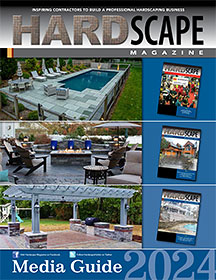Articles Written by Charles Vander Kooi
Get Professional Help
By Charles Vander Kooi
Contracting is risky business. Over 70% of those who start a contracting business never make it through their third year. Less than 18% make it to their 10th year. Only the restaurant business is more risky. So, the next time you see a restaurant closed down, remember, you could be next.
Many contractors fail because they don't get the advice they need. Or, the advice they do get does not take into consideration the uniqueness of their business. Following are my thoughts for getting good advice from accountants and consultants.
Accountants report history
To understand when to use accountants you must first understand that many view themselves as reporters. They collect financial information to give you a report on what happened. They are historians who deal with history of your income and expenses. Many are not trained to look at what is needed for the future. They expect you to interpret that report to make your decisions for the future.
Many accountants are also at a disadvantage because they deal with a myriad of different kinds of businesses. Because of that, it is difficult for them to compare you with businesses that are like yours because your contracting business is so unusual.
I have been to many contractor businesses, discovered their problems and provided solutions only to hear the contractor say: "Why didn't my accountant see these things and tell me?" That's when I explain what I have just pointed out to you.
Now I am not down on accountants. Most of them do their job of historical reporting very well. It is a critical function for any business. The problem is that contractors often expect accountants to do more than they are trained to do. Other contractors feel that if the accountant says nothing, then things must be all right.
Consultants Interpret History
You can also get advice from a consultant who specializes in the business. They take historical information prepared by the accountant and interpret what it means in running your business.
They are also consistently exposed to other businesses similar to your business. This gives them the ability to compare you with other companies. They can quickly recognize which costs, procedures and methodologies you use are out of line with the norm.
They also tend to be futuristic. They approach your business from a standpoint of: "This is what has been happening, but here is how we can change the course of events so that in the future you will be more profitable."
Choosing an Accountant
In choosing either an accountant or a consultant, there are certain concepts you should follow. Let's first consider hiring an outside bookkeeper, or accountant. There are 3 things to consider:
- Do they have experience with hardscape/landscape construction contractors? One way to find a person with these credentials is by asking others in your business who they use. Another source is to ask your insurance agent if he knows an insurance company that specializes in writing bonds for contractors. These bonding companies always know of bookkeepers and accountants who specialize in your type of business.
- Be very clear with a potential bookkeeper / accountant about what you expect and how often you need reports from them. Like so many business people, many of them can't say no so they take on more clients than they can service and you end up getting incomplete or late information.
- Make sure you can establish a rapport with that person. For each of us, there are people we can talk to and understand what they are saying, and there are people we can't relate to.
Choosing a Consultant
Having been a consultant for 23 years, I have long learned that relationships are just as important for choosing a consultant. I know the families, thought processes, and personalities of all my clients. That has helped me build a rapport with each of them and allows me to give advice in a way they will understand and accept.
In hiring an industry consultant for business advice, you should consider the same 3 things that you encourage your would-be clients to consider in selecting a contractor.
- Experience. I am not just talking about experience in consulting, but rather the experience of actually practicing this business. It is difficult for someone to give advice unless they have sat where you sit, and have done what you do.
- Get references. However, realize the references a consultant gives you, are people the consultant feels will sing his praises. Consequently, be sure to ask those references for what they see as the consultant's strengths and weaknesses. If those weaknesses are in the area you feel you need help in, continue your search.
- Cheap is what you get. Just as some of your competitors are so cheap you wonder how they can do the job at that price, we have the same problem in the consulting industry. A consultant may have to be cheap in order to get work. If you are out trying to sell jobs based on quality, and not price, it is hypocritical for you to hire an advisor based on price rather than quality.
I close this article with my favorite motto: if you think knowledge (advice) is expensive, try ignorance.















